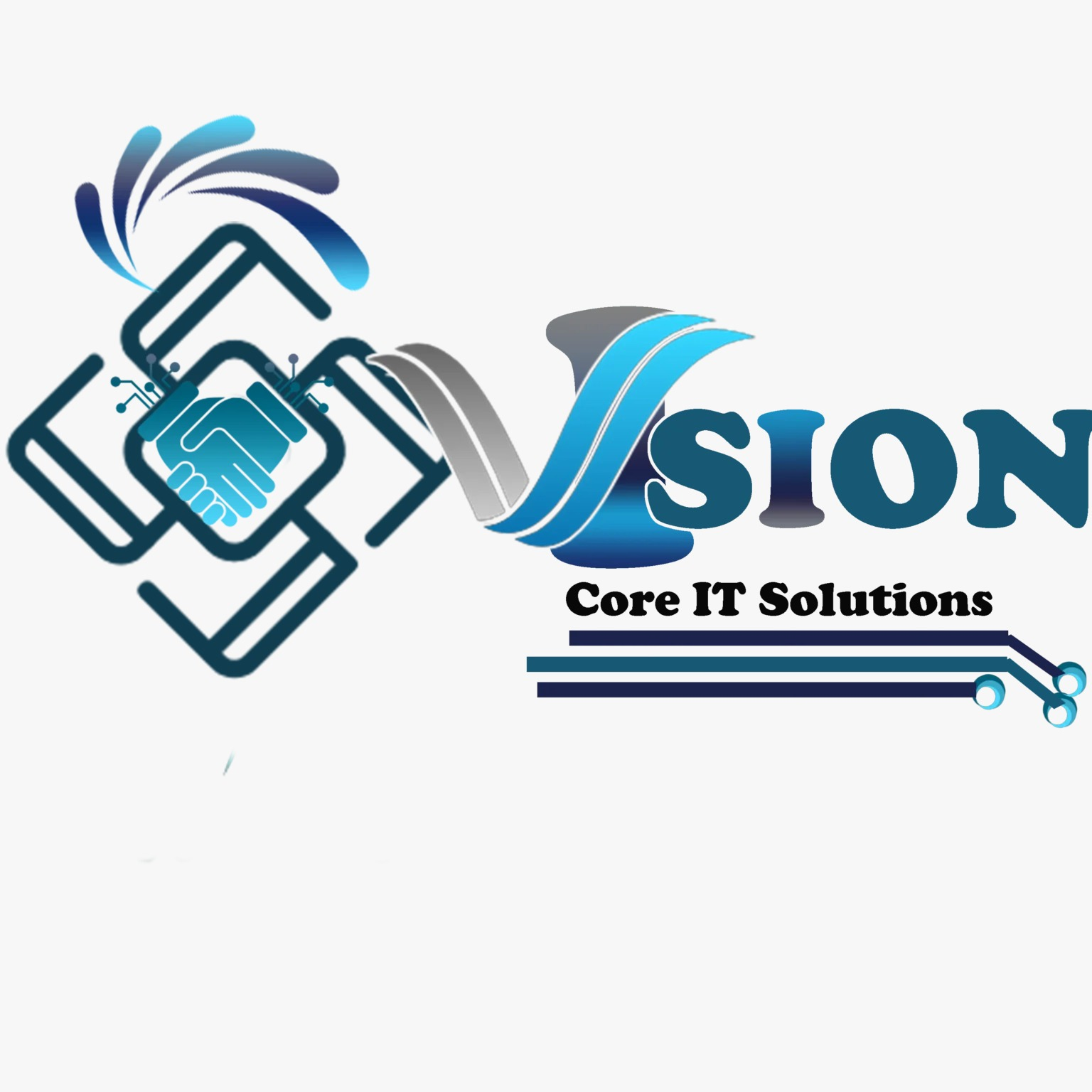 Core Web Vitals Boost – Speed Up Your Site & Your SEO!
Core Web Vitals Boost – Speed Up Your Site & Your SEO!
A Guide to Choosing the Best Custom Software Development Company
Written by Vision Core IT Solution » Updated on: June 17th, 2025

In today’s fast-paced business world, custom software development is essential for organizations seeking to stay competitive and improve operational efficiency. Custom software allows businesses to tailor solutions to meet their specific needs, ensuring greater flexibility, scalability, and improved user experiences. However, choosing the right custom software development company is a critical decision that can make or break the success of your project. With numerous companies offering software development services, it can be overwhelming to pick the right partner. This guide will walk you through the key factors to consider when choosing the best custom software development company for your business.

1. Define Your Business Needs and Goals
Before diving into the search for a custom software development company, it is essential to have a clear understanding of your business needs and objectives. Having a precise vision of what you want to achieve will help you evaluate potential companies more effectively. Here are some questions to ask yourself:
What problem are you trying to solve with custom software?
What specific functionalities do you need in the software?
Who is the end user, and what kind of experience should the software offer?
What are the long-term goals and scalability requirements?
By having a clear understanding of your goals, you can ensure that the software development company you choose is equipped to deliver a solution that addresses your unique business challenges. A well-defined project scope will also help avoid misunderstandings and scope creep down the line.
2. Evaluate the Company’s Expertise and Experience
When choosing a custom software development company, one of the most important factors is its expertise and experience. A company with a proven track record of successfully delivering software projects will likely offer higher-quality results. Here’s how to assess a company’s expertise:
Industry Experience: Choose a company with experience in your industry. Industry-specific knowledge allows the development team to understand the challenges and requirements unique to your business. This can help them create more effective solutions.
Technical Skills: The company should have a strong foundation in the latest technologies and programming languages that align with your project. For example, if you need a mobile app, the company should have expertise in iOS and Android development, as well as cross-platform development frameworks like Flutter or React Native.
Past Projects and Portfolio: Review the company’s past projects to evaluate the quality of their work. A good portfolio demonstrates the company’s ability to deliver high-quality software and meet deadlines. Ask for case studies or examples of similar projects to yours.
Experience in handling projects similar to yours ensures that the company can handle potential roadblocks and provide insightful solutions during the development process.
3. Assess Their Approach to Development and Methodology
The software development process is complex, and choosing a company with the right approach and methodology can significantly impact the project’s success. Two of the most widely used software development methodologies are:
Agile Development: Agile focuses on iterative development, where work is divided into smaller, manageable phases or sprints. This allows for flexibility and adaptation, making it ideal for projects that may evolve over time.
Waterfall Development: Waterfall is a more traditional, linear approach where each phase of development is completed before moving on to the next. It is best suited for projects with clearly defined requirements that are unlikely to change.
You should choose a company that uses a methodology suited to your project’s needs. If your requirements are likely to change or evolve during development, an Agile approach is recommended. On the other hand, if you have a fixed, well-defined scope, Waterfall might be a better fit.
4. Review Their Communication and Collaboration Skills
Effective communication is crucial throughout the software development lifecycle. You want a company that is responsive, transparent, and easy to collaborate with. Look for the following indicators of good communication:
Clear communication channels: Ensure that the company uses reliable communication tools like email, chat, and project management platforms (e.g., Slack, Jira, or Trello) to maintain transparency and collaboration.
Frequent updates and progress reports: Regular updates on the status of your project will help keep everyone aligned and ensure that any issues are identified and addressed promptly.
Cultural fit: A company that aligns with your company culture and values will be easier to work with. For example, if your team values creativity and innovation, it’s important to choose a partner with a similar mindset.
Good communication ensures that you are kept informed throughout the development process and that your requirements are understood and implemented correctly. Misunderstandings can lead to delays, rework, and project failure.
5. Check Their Reputation and Client Reviews
A reputable custom software development company will have positive feedback from past clients. Client testimonials, reviews, and references provide valuable insights into the company’s work ethic, reliability, and performance. Here’s how to gather information:
Client Testimonials and Reviews: Look for reviews on platforms like Clutch, GoodFirms, and Google Reviews. Positive reviews can give you confidence in the company’s ability to deliver quality results.
References and Case Studies: Ask for references from previous clients, especially those in a similar industry. Speaking with past clients allows you to gain a deeper understanding of how the company handles projects, communicates, and meets deadlines.
Awards and Recognition: Industry awards and recognition are indicators of a company’s reputation and quality. Companies that are recognized for excellence are more likely to deliver outstanding results.
By reviewing a company’s reputation and client feedback, you can ensure that you are partnering with a reliable and trustworthy development team.
6. Consider the Company’s Post-Launch Support and Maintenance
The development process doesn’t end once the software is launched. Post-launch support and maintenance are critical to ensuring that the software remains functional, secure, and updated. Here are some aspects to consider:
Ongoing support: Will the company provide ongoing support after the project is completed? It’s essential to have a team available to address any issues, bugs, or questions that may arise.
Software updates: Technology evolves rapidly, and regular updates are necessary to keep your software running smoothly. Ensure that the company offers a plan for future updates and scalability.
Bug fixes and troubleshooting: Ensure the company has a clear process for handling bug fixes and addressing issues that may arise post-launch.
Choosing a company that offers comprehensive post-launch support will help you maintain the longevity and success of your custom software.
7. Review the Company’s Pricing Structure
Pricing is an important factor when choosing a custom software development company. While cost should not be the sole determining factor, it is essential to ensure that the company’s pricing structure aligns with your budget. Keep the following in mind:
Fixed Price vs. Hourly Rates: Some companies offer a fixed price for the entire project, while others charge hourly rates. Fixed-price contracts are ideal for well-defined projects, while hourly rates offer flexibility for evolving projects.
Transparency in pricing: The company should provide clear and detailed pricing that includes all costs, such as development, testing, deployment, and maintenance. Avoid companies with hidden fees or unclear pricing structures.
Value for money: While it may be tempting to choose the cheapest option, consider the overall value the company offers. A higher upfront cost may be justified if the company can deliver high-quality work, reliable support, and long-term benefits.
Ensure that the pricing structure aligns with your project’s scope, and make sure you’re getting good value for the investment.
8. Scalability and Flexibility
The custom software developed for your business should not only meet your current needs but also be able to scale as your business grows. Look for a development company that understands your long-term goals and builds solutions with scalability in mind. This includes designing software that can handle an increasing number of users, expanding functionalities, and integrating with other systems as your business evolves.
Additionally, the company should be flexible enough to accommodate future changes. As market demands and business objectives shift, your software may need adjustments or new features, and the development team should be able to handle those changes efficiently.
9. Security and Compliance
Custom software often involves handling sensitive data, making security and compliance a top priority. Ensure that the company you choose follows best practices for data security, including encryption, secure coding practices, and regular security audits. Additionally, the company should be knowledgeable about relevant compliance regulations such as GDPR, HIPAA, or CCPA, depending on your industry.
A company with strong security measures and compliance knowledge will help ensure that your software is safe, secure, and legally compliant.
Conclusion
Choosing the right custom software development company is essential for the success of your project. By considering factors such as expertise, experience, communication, reputation, post-launch support, pricing, and scalability, you can ensure that you partner with a company that aligns with your business goals and delivers a high-quality solution. With the right partner, you can create software that enhances operational efficiency, improves customer experiences, and drives long-term growth. Take the time to research and evaluate potential companies thoroughly, and you will be well on your way to finding the perfect fit for your business.
Note: IndiBlogHub features both user-submitted and editorial content. We do not verify third-party contributions. Read our Disclaimer and Privacy Policyfor details.
Copyright © 2019-2025 IndiBlogHub.com. All rights reserved. Hosted on DigitalOcean for fast, reliable performance.














